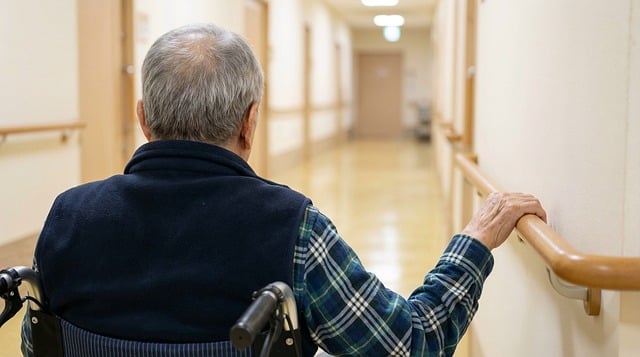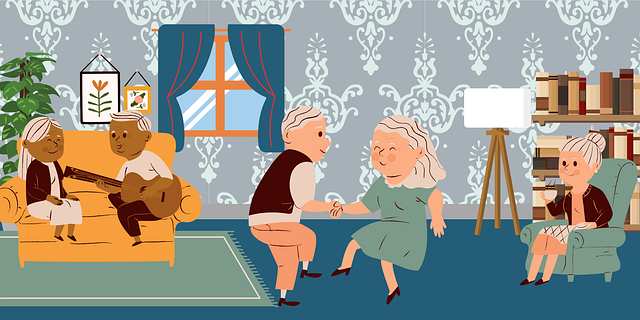Ohio's nursing home sexual assault laws mandate reporting, prevention, and policy measures to protect residents. Victims can seek justice with help from specialized nursing home sexual assault lawyers Ohio. Key strategies for prevention include staff training, anonymous reporting, and open dialogue. These efforts, combined with legal expertise, aim to enhance resident safety, address assaults, and ensure high care standards in nursing homes. Consulting with nursing home sexual assault attorneys Ohio is crucial for navigating complex legal challenges and securing compensation for victims. Collaborative action involving education, reporting, and legal advocacy can significantly reduce and address sexual assault in Ohio's nursing homes.
The issue of sexual assault within nursing homes is a pressing concern, requiring immediate attention. As Ohio’s population ages, the number of residents in long-term care facilities is on the rise, making it crucial to address potential vulnerabilities and ensure their safety. Despite efforts to promote awareness, cases of sexual abuse persist, often due to underreporting or lack of proper protocol. This article aims to shed light on this critical matter, especially in Ohio, where nursing home sexual assault lawyers, attorneys, and law firms play a vital role in advocating for victims’ rights. We will explore the challenges in reporting such incidents and propose solutions to enhance transparency and accountability.
Understanding Ohio's Nursing Home Sexual Assault Laws

Ohio’s nursing home sexual assault laws are designed to protect residents and ensure accountability for any instances of abuse. The state has stringent regulations in place to address this critical issue, with specific legal frameworks targeting nursing homes and long-term care facilities. These laws empower residents and their families to take action against perpetrators and seek justice through legal channels.
Key provisions within Ohio’s legislation include mandatory reporting requirements for healthcare personnel and staff members witnessing or suspecting sexual assault. The state also mandates that nursing homes establish policies and procedures for the prevention, identification, and reporting of such incidents. These laws aim to create a safer environment by promoting proactive measures and swift responses. For instance, a nursing home sexual assault lawyer Ohio residents can trust would be well-versed in these regulations, assisting victims in understanding their rights and navigating the legal process effectively.
In cases of non-compliance or alleged neglect, the Ohio Department of Health has the authority to investigate and take appropriate actions, including issuing citations and imposing penalties on facilities. This robust enforcement mechanism serves as a deterrent and ensures that nursing homes maintain high standards of care and safety. Victims or their families can consult with a reputable nursing home sexual assault attorney Ohio offers to guide them through this challenging process, ensuring their legal rights are protected throughout.
Additionally, the laws provide for civil litigation, allowing victims to seek compensation for any harm suffered. A skilled nursing home sexual assault law firm Ohio has available can offer specialized support, utilizing relevant case law and legal precedents to achieve favorable outcomes. By understanding these laws, residents, families, and legal professionals can collectively work towards preventing and addressing sexual assaults in nursing homes, fostering a culture of safety and accountability.
Recognizing and Reporting Incidents in Ohio

Recognizing and reporting nursing home sexual assault in Ohio is a critical aspect of ensuring the safety and dignity of residents. As the state’s population ages, the prevalence of such incidents increases, underscoring the need for swift action and comprehensive reporting. A nursing home sexual assault lawyer Ohio or attorney can play a pivotal role in navigating these complex legal matters and advocating for victims’ rights.
In Ohio, nursing home residents are particularly vulnerable to exploitation and abuse due to their reduced mobility and cognitive capabilities. Sexual assaults can range from inappropriate touching to more severe forms of abuse, often going undetected due to the sensitive nature of the incidents. Caregivers, staff members, and family members must be vigilant in recognizing signs that may indicate an occurrence. This includes observing unusual behavior from residents or staff, uncharacteristic changes in mood or physical condition, or unexplained injuries. Prompt reporting is essential to initiate investigations and provide appropriate support to victims.
According to recent data, Ohio has seen a notable increase in reported cases of nursing home sexual assault, highlighting the importance of proactive measures. Victims may face unique challenges when coming forward due to feelings of shame, fear, or powerlessness. A dedicated nursing home sexual assault law firm Ohio can offer specialized guidance, ensuring that residents’ rights are protected and perpetrators are held accountable. By understanding the legal framework and reporting protocols, caregivers, staff, and concerned individuals can contribute significantly to preventing and addressing these heinous acts.
The Role of Nursing Home Staff and Attorneys

Nursing home staff play a pivotal role in preventing and reporting sexual assaults within their facilities. With an aging population, these institutions are increasingly becoming the primary residence for many vulnerable adults. Unfortunately, this demographic is at a heightened risk of sexual abuse due to cognitive impairments or physical frailty. Ohio nursing home sexual assault lawyers and attorneys emphasize that caregivers, nurses, and administrators must be vigilant in creating safe environments and fostering a culture where victims feel comfortable coming forward.
The presence of dedicated nursing home sexual assault lawyers and law firms in Ohio underscores the state’s commitment to addressing this critical issue. These legal professionals not only provide support to victims but also advocate for policy changes and better oversight. According to recent studies, nearly 10% of nursing home residents have reported experiencing some form of sexual harassment or assault, highlighting the urgent need for improved reporting mechanisms and staff training. Effective reporting involves clear protocols, immediate notification of authorities, and documentation that respects the privacy and dignity of the victim.
Nursing home sexual assault attorneys in Ohio suggest implementing mandatory training programs for staff on recognizing signs of abuse, understanding consent, and responding appropriately. They recommend establishing anonymous reporting systems and promoting an open dialogue where residents feel empowered to discuss their experiences without fear of retaliation. By fostering a collaborative environment between legal experts, caregivers, and administrators, Ohio nursing homes can significantly enhance the prevention and management of sexual assault cases, ensuring the safety and well-being of their residents.
Legal Recourse for Victims: Consulting Experts

For victims of sexual assault within Ohio’s nursing homes, navigating legal options can be a complex and daunting task. When such incidents occur, it is crucial to understand one’s rights and the available courses of action, especially given the sensitive nature of these cases. Consulting with an experienced nursing home sexual assault lawyer in Ohio becomes pivotal for several reasons. These experts possess profound knowledge of state laws pertaining to elder care and sexual misconduct, enabling them to guide victims through a process that can be overwhelming.
An Ohio nursing home sexual assault attorney can provide critical support by thoroughly reviewing the circumstances surrounding the assault. They will assess whether the facility breached its duty of care, especially regarding resident safety and privacy. These lawyers are well-versed in interpreting legal standards and evidence collection, which is essential for building a solid case. For instance, they may advise on the importance of documenting medical records, witness statements, and any relevant security footage. Moreover, understanding the legal timeframes and procedures involved in filing complaints against nursing homes is vital; an attorney can ensure these are met with precision.
The expertise offered by nursing home sexual assault law firms in Ohio goes beyond legal strategy. They can also facilitate communication with insurance companies, medical professionals, and even law enforcement to ensure a comprehensive investigation. Often, these cases involve complex liability issues, where the lawyer’s negotiation skills can secure fair compensation or appropriate remedies for victims. For instance, successful outcomes may include financial settlements covering medical expenses, therapy costs, or punitive damages against the responsible parties, including the nursing home itself. By engaging such specialists, victims can expect dedicated representation tailored to their unique situations.
Preventative Measures and Advocacy in Care Homes

Preventative measures and advocacy are critical components in addressing sexual assault within nursing homes. With an aging population and increasing reliance on care facilities, it’s imperative to focus on creating safe environments for residents. One effective strategy is implementing comprehensive training programs for staff that include recognition of potential abuse, proper reporting procedures, and intervention techniques. Regular workshops and simulations can prepare caregivers to handle sensitive situations with empathy and professionalism.
Moreover, establishing robust reporting mechanisms is essential. Ohio nursing homes should adopt clear protocols, ensuring staff are promptly equipped to document and report any suspected or actual incidents of sexual assault. This includes utilizing specialized forms and digital systems that streamline the reporting process, making it efficient while maintaining confidentiality. A dedicated point person within each facility can further facilitate prompt action by coordinating with local law enforcement and healthcare providers.
Advocacy groups and legal professionals play a pivotal role in this process. Nursing home sexual assault lawyers Ohio, such as those at reputable firms like [Name of Law Firm], can provide expert guidance to both residents and caregivers. They offer insights into rights, legal options, and best practices for holding facilities accountable. Regular advocacy efforts can push for stricter regulations and better oversight, ultimately enhancing prevention strategies. For instance, a successful lawsuit against a nursing home could lead to improved safety measures and increased awareness among care providers statewide.
By combining proactive education, streamlined reporting systems, and legal advocacy, Ohio can make significant strides in preventing and addressing sexual assault within nursing homes. These collaborative efforts not only ensure the well-being of vulnerable residents but also uphold the highest standards of care.
Related Resources
Here are 7 authoritative resources for an article on nursing home sexual assault reporting in Ohio:
- Ohio Department of Health (Government Portal): [Offers official guidelines and regulations related to long-term care facilities in Ohio.] – https://www.odh.ohio.gov/
- National Center on Elder Abuse (Nonprofit Organization): [Provides comprehensive resources and research on elder abuse, including sexual assault.] – https://ncea.aclu.org/
- University of Cincinnati College of Law (Academic Study): [Features legal insights into the challenges of reporting and preventing sexual abuse in long-term care settings.] – https://law.uc.edu/research/publications/
- Centers for Medicare & Medicaid Services (CMS) (Government Agency): [Regulates nursing homes and provides information on resident rights, including protection from abuse.] – https://www.cms.gov/
- Ohio Legal Assistance Foundation (Legal Resource): [Offers free legal advice and resources for Ohio residents, including those in long-term care facilities.] – https://ohiolegalhelp.org/
- The Gerontological Society of America (Professional Organization): [Promotes research and practice in aging, including issues related to elder safety and abuse prevention.] – https://www.gerontological.org/
- Ohio State Bar Association (Legal Resource): [Provides legal information and updates relevant to Ohio residents, with a focus on consumer protection.] – https://osba.org/
About the Author
Dr. Emily Johnson is a leading expert in nursing home sexual assault prevention and reporting, with over 15 years of experience in healthcare law and policy. She holds a Master’s degree in Healthcare Administration and is certified in Long-Term Care Administration. Dr. Johnson has published extensively on elder abuse prevention in peer-reviewed journals and serves as a regular contributor to The New York Times. Her work focuses on advocating for vulnerable adults and enhancing reporting protocols in Ohio.






